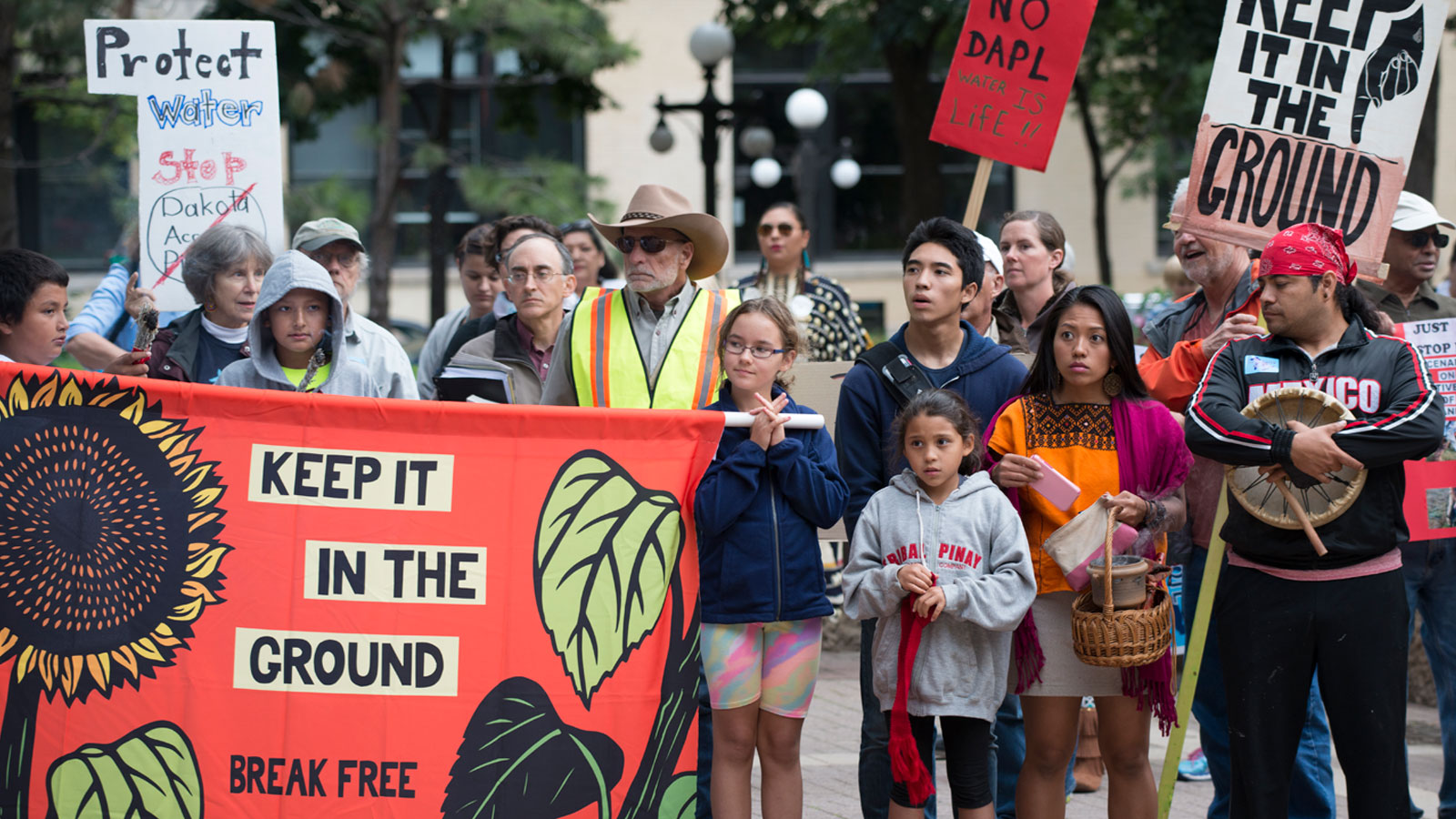People in low-income, minority communities often live close to a power plant, factory, or highway. So they often bear the brunt of pollution from these facilities. And communities of color are also more likely to be located in areas that are vulnerable to flooding and other weather-related disasters.
So for a growing network of activists, ending the climate crisis also means ending systemic racism, which often underlies these inequalities.
“In order for us to for us to do this work together, we have to learn about how we got to this moment. We have to learn how to cultivate a culture of anti-racism,” says Lindsay Harper, the national coordinator of Arm in Arm, a new project of the US Climate Action Network. “And we also have to learn about non-violent direct action.”
Arm in Arm runs trainings on antiracism, climate justice, and activist organizing. And the group is helping set up city and regional hubs to help connect and inspire activists to apply this knowledge at the local level.
Arm in Arm members have participated in a protest against an oil pipeline in Minnesota, a rally in Georgia to demand clean-up of toxic coal ash, and a demonstration in D.C. to push for safe, bikeable streets.
“We are building momentum. People are showing up for each other,” Harper says. “And so we’re on our way.”
Reporting credit: Sarah Kennedy/ChavoBart Digital Media
Source link


